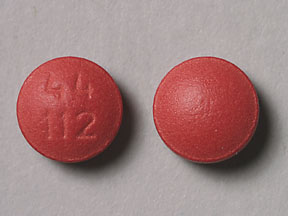
Gnp Nasal Decongestant Coupons & Savings Card – Discount Prices from $10.37
Brand for: Pseudoephedrine hcl
My prescription
Edit
30MG, Pseudoephedrine Hcl (30 Tablets)
Select pharmacy

Walgreens
$10.37
COUPON PRICEGnp Nasal Decongestant savings card
Show this card to your pharmacist
Walgreens
$10.37
BIN
ID
PCN
GRP
019876
LH61C306E9
CHIPPO
LHX
Powered by
Gnp Nasal Decongestant (Pseudoephedrine Hcl) dosage forms
Dosage Quantity Price from Per unit 30MG 30 Tablets $10.37 $0.35 30MG 60 Tablets $11.74 $0.20 30MG 90 Tablets $13.10 $0.15
| Dosage | Quantity | Price from | Per unit |
|---|---|---|---|
| 30MG | 30 Tablets | $10.37 | $0.35 |
| 30MG | 60 Tablets | $11.74 | $0.20 |
| 30MG | 90 Tablets | $13.10 | $0.15 |
Gnp Nasal Decongestant Warnings
When using this medication, it is crucial to be aware of potential interactions and precautions to ensure safe use. Here are some important safety instructions:
Avoid MAO Inhibitors: Do not take this medication in combination with MAO inhibitors, as this may result in a severe, potentially life-threatening reaction. MAO inhibitors include drugs such as isocarboxazid, linezolid, metaxalone, methylene blue, moclobemide, phenelzine, procarbazine, rasagiline, safinamide, selegiline, and tranylcypromine. It is also recommended to avoid most MAO inhibitors for at least two weeks prior to starting this medication. Consult with your healthcare provider for guidance on when to begin or discontinue this medication.
Check Other Medications: Review the labels of all your current medications, particularly those used for allergies, or cough-and-cold symptoms, as they may contain similar compounds like decongestants (e.g., phenylephrine). Discuss with your pharmacist to ensure these products can be used safely in conjunction with this medication.
These precautions are vital for minimizing risks and ensuring the effectiveness of your treatment. Always consult with your healthcare provider for personalized advice and further instructions.
Gnp Nasal Decongestant Side Effects
When taking this medication, you might experience some mild side effects such as nausea, vomiting, difficulty sleeping, dizziness, headache, or feelings of nervousness. These symptoms are generally not serious and often improve over time. However, if they persist or worsen, it’s important to consult your healthcare provider. In rare instances, more severe side effects can occur. These include persistent stomach or abdominal pain, a fast or irregular heartbeat, noticeable changes in mood or mental state such as anxiety or confusion, shaking or tremors, and difficulty urinating. If you encounter any of these symptoms, stop taking the medication and seek medical attention immediately. Allergic reactions to this medication are uncommon but can be serious. Be alert for signs of a severe allergic reaction, such as a rash, itching or swelling, particularly on the face, tongue, or throat, severe dizziness, or trouble breathing. If you experience any of these symptoms, seek emergency medical help right away. While many people do not experience significant side effects, it’s important to be aware of them and consult your doctor if you notice any unusual symptoms. Always monitor your health and report any adverse effects to a healthcare professional.
Gnp Nasal Decongestant Interactions
Using the SaveHealth discount card, what is the price of Gnp Nasal Decongestant without insurance?
Using the SaveHealth discount card, the price of Gnp Nasal Decongestant without insurance is $10.37.
What is the price of Gnp Nasal Decongestant at Walgreens?
The price of Gnp Nasal Decongestant at Walgreens is $10.37.
